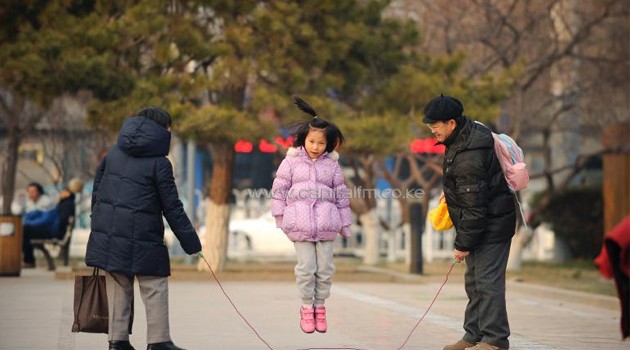Couples will be allowed to have two children if one of the parents is an only child, the official news agency Xinhua reported, citing a “key decision” made by leaders at this week’s gathering, known as the Third Plenum.
The policy was brought in during the late 1970s to control China’s huge population, the world’s largest.
But it has at times been brutally enforced, with authorities relying on permits, fines and, in some cases, forced sterilisations and late-term abortions, with pictures of the results causing horrified reactions.
Critics also argue that it has contributed to the gender imbalance in China, where sex-specific abortions remain common. Almost 118 boys were born for every 100 girls in 2012, and female infanticide and the abandoning of baby girls have also been reported.
“The birth policy will be adjusted and improved step by step to promote ‘long-term balanced development of the population in China’,” Xinhua reported, citing the party decision.
The law currently restricts most couples to one child, with one of the exceptions allowing a second if both parents are only children. Others exempted include ethnic minorities and farmers whose first child is a girl.
Despite calls for the relaxation of the family planning policy and rumours that it might be reformed, Chinese officials have repeatedly argued that it is still needed, saying that over-population threatens the country’s development.
At the same time census officials warned earlier this year that China’s working-age population had begun to shrink for the first time in recent decades, falling by about 3.45 million to 937 million in 2012.
The drop added to concerns about how the country will provide for its 194 million elderly citizens, who now make up 14.3 percent of the population, a nearly three-fold increase from 1982.
“For older generations, life is going to be very painful,” Sun Wenguang, a retired academic from Shandong University in Jinan, told AFP earlier this year.
Most only children currently face the daunting task of looking after two parents and four grandparents in a society where many elderly are still cared for by relatives.
Those seeking a loosening of the family-planning law saw signs of hope in April, when China’s family planning commission, whose hundreds of thousands of personnel ensure the rules are followed, was merged with the health ministry at the country’s annual parliament meeting.
The government has also pledged ambitious reforms to loosen the Communist authorities’ grip on the world’s second-largest economy.
The ruling party issued a document detailing economic reforms following the key meeting.
The plans include requiring state firms to pay larger dividends to the government, and allowing private companies a bigger role in the economy, according to the document issued by the official Xinhua news agency.
The government will require 30 percent of earnings from “state capital” to be paid back to the public coffers and used for social security by 2020, it said.
China’s 113 major state-owned enterprises (SOEs) directly under central government typically pay five to 20 percent of their profits to the government in dividends — the part of a company’s earnings distributed to shareholders.
“This will have an effect on facilitating a better competitive environment,” ANZ Banking Group economist Liu Ligang told AFP, adding it would make cash-rich SOEs allocate funds more rationally.
China moved to shut down or merge loss-making state firms in the late 1990s, leaving a smaller number, but with immense power over large sectors of the economy.
Further reforms have been made difficult by opposition from the state sector, which has been enriched by close ties to the government and lack of competition.










































